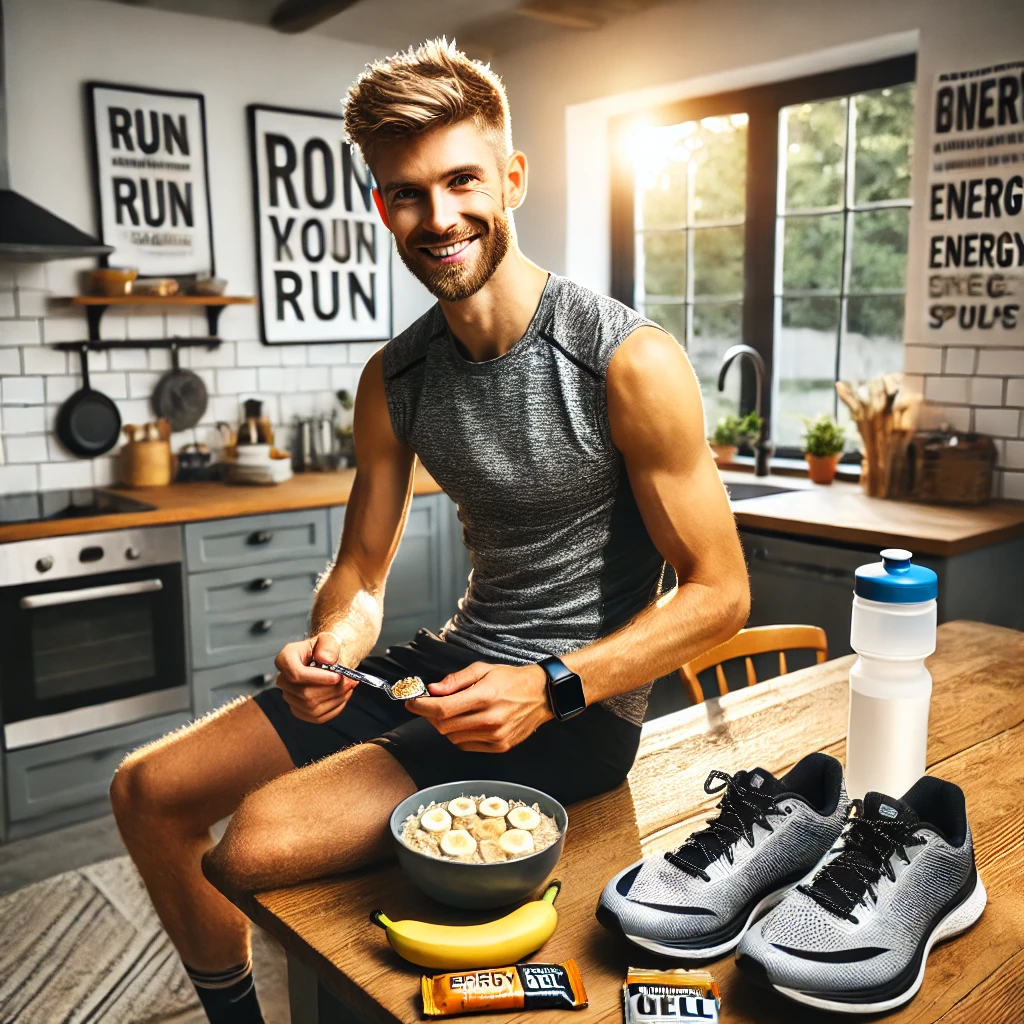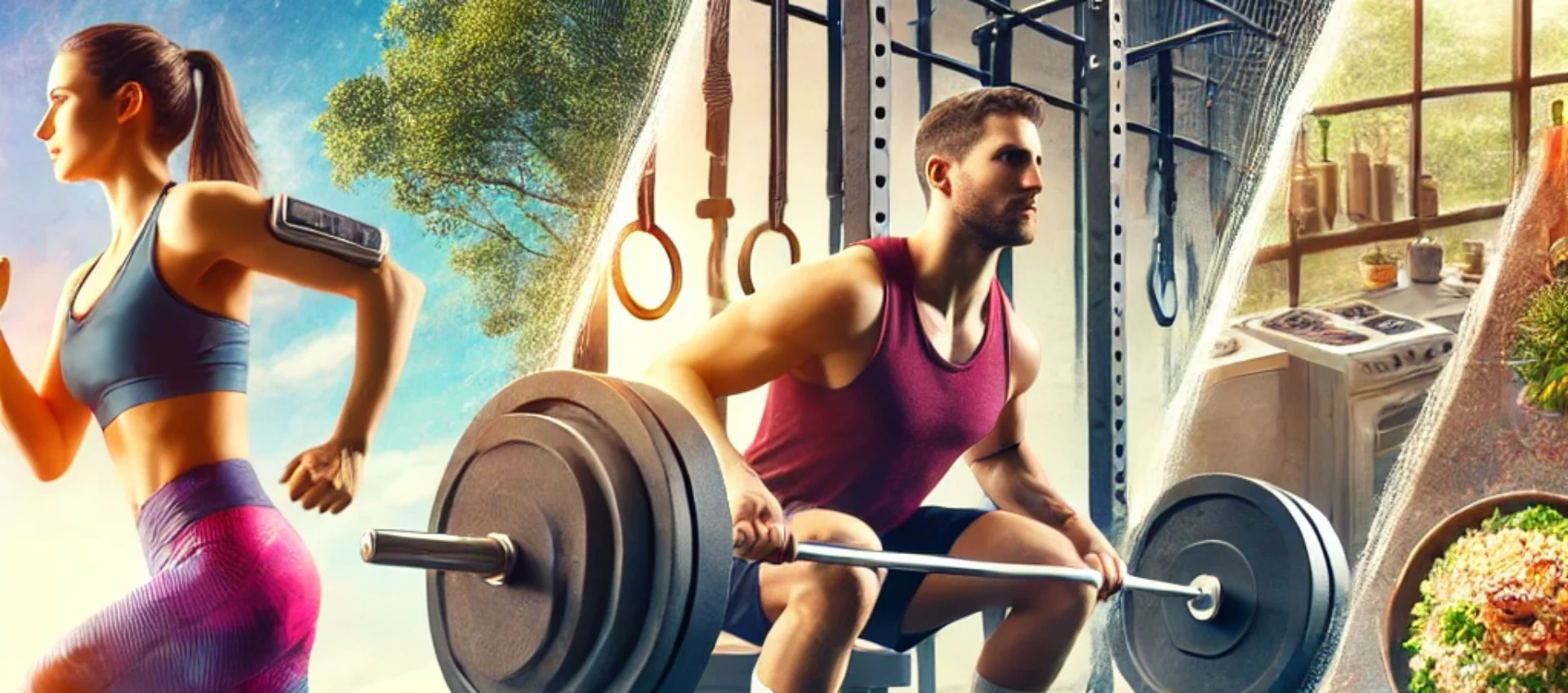
What to Eat in the Days Before a Run
Fueling your body properly in the days leading up to a run is just as important as your training. Whether you’re preparing for a 5km, 10km, or marathon, eating the right foods at the right times can help you perform at your best, avoid digestive issues, and recover quickly. Here’s a guide to help you optimize your pre-run nutrition.
1. Two to Three Days Before Your Run: Build Your Fuel Stores
Your body relies on glycogen (stored carbohydrates) as its primary energy source during a run. In the days leading up to your run, focus on:
- Carbohydrate Loading
Increase your intake of complex carbohydrates to maximize glycogen stores. Examples include:- Brown rice, quinoa, or pasta
- Oats, whole-grain bread, or sweet potatoes
- Fruits like bananas, apples, or berries
- Balanced Meals
Pair carbs with lean proteins and healthy fats to keep your energy stable. For example:- Grilled chicken with quinoa and steamed veggies
- Salmon with brown rice and avocado
- A turkey sandwich on whole-grain bread with a side of fruit
- Hydration
Drink plenty of water throughout the day to stay hydrated. Add electrolyte-rich drinks if you’re prone to sweating a lot during runs.
2. The Day Before Your Run: Simplify Your Meals
This is not the time to experiment with new foods or eat heavy, greasy meals. Stick to what you know works for your body.
- Focus on Easily Digestible Carbs
Choose light, low-fiber carbs to prevent stomach discomfort:- White rice or pasta
- Plain bagels or toast
- Bananas or applesauce
- Moderate Protein and Fat
Include moderate amounts of lean protein and minimal fat. Avoid foods that are overly fatty, fried, or rich, as they can slow digestion. - Avoid High-Fiber Foods
Minimize beans, lentils, broccoli, and other high-fiber vegetables to reduce the risk of bloating or an upset stomach during your run. - Stay Hydrated
Sip water consistently throughout the day. Aim for clear or light-colored urine as a sign of good hydration.
3. The Night Before Your Run: Carbs Are King
Your dinner the night before should be carb-focused, with some protein and minimal fat.
- Examples of Pre-Run Dinners:
- Spaghetti with marinara sauce and a side of bread
- Grilled chicken with white rice and a small portion of cooked carrots
- A baked potato topped with a small amount of lean meat or cheese
- Keep Portions Reasonable
Don’t overeat or “stuff” yourself—it’s about fueling, not overloading. - Avoid Alcohol and Excess Salt
Alcohol can dehydrate you, and salty foods can cause bloating or water retention.
4. The Morning of Your Run: Pre-Run Breakfast
Your pre-run meal is your body’s final fuel boost. Eat 1.5-3 hours before your run to give your body time to digest.
- Aim for 200-400 Calories
Focus on easily digestible carbs with a small amount of protein:- A banana with peanut butter and a slice of toast
- Oatmeal topped with a drizzle of honey and a few raisins
- A plain bagel with a light spread of jam
- Avoid Fat and Fiber
Skip heavy, greasy foods or high-fiber options to prevent stomach upset. - Stay Hydrated
Drink 200-300ml of water when you wake up, but avoid overloading—being overly hydrated can feel uncomfortable during your run.
5. Final 30 Minutes Before the Run
If you need a small energy boost before starting, have a quick, easily digestible snack, like:
- Half a banana
- An energy gel
- A handful of pretzels
Bonus Tips:
- Listen to Your Body: Everyone is different. Experiment during training to find what works best for you.
- Avoid Caffeine (If New): If you’re not used to caffeine, avoid it before the run to reduce the risk of jitters or stomach upset.
- Don’t Forget Electrolytes: If it’s a hot day, ensure your hydration plan includes electrolytes to avoid cramping.


